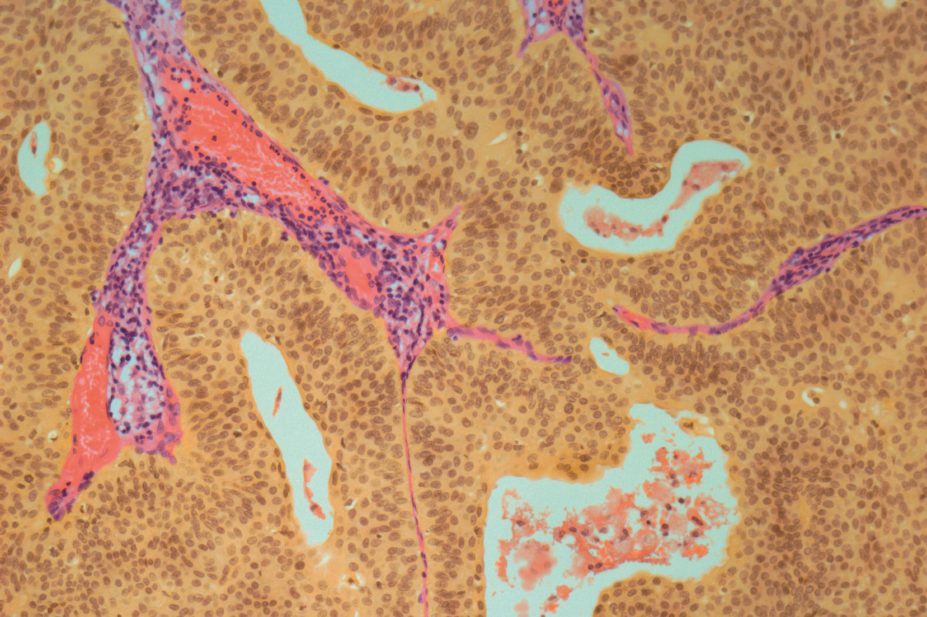
Steve Gschmeissner / Science Photo Library
Chemotherapy is the standard of care for metastatic bladder cancer (MBC). A new therapy is now on the horizon involving an immune checkpoint inhibitor, MPDL3280A, which has shown “striking preliminary efficacy and safety results” and has been granted breakthrough status by the US Food and Drug Administration.
MPDL3280A is an antibody against programmed death-ligand 1 (PD-L1), a protein expressed by activated T-cells. In a Phase I study involving 68 patients with MBC, published in Nature (online, 26 November 2014)[1]
, 27% were found to have PD-L1-positive tumours. After six weeks of treatment, 43% of patients with PD-L1-positive tumours had an objective response, rising to 52% after 12 weeks. Two patients (7%) had a complete response.
MPDL3280A was well tolerated, with adverse event rates similar or lower than those seen with standard chemotherapy.


